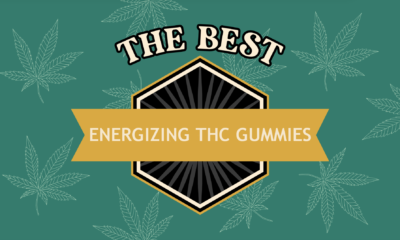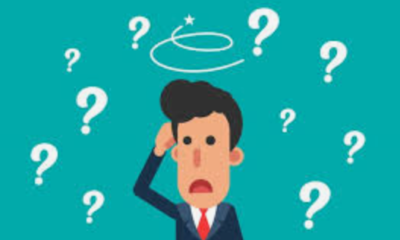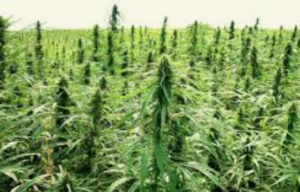Had too much THC and need to reduce its effects? Generally, science and cannabis professionals say take some CBD, the non-psychoactive cannabinoid, to balance it out. But new research indicates that may not be a good idea.
A recent study in Clinical Pharmacology & Therapeutics found that CBD can actually increase the psychoactive effects of cannabis. This news may surprise many, as CBD has been touted as a substance that can block or reduce the psychoactive aspects of too much THC. The theory goes that CBD, due to its unique engagement with endocannabinoid receptors, can block the activity of THC, the most abundant cannabinoid and main driver of cannabis’ psychoactive effects.
Can CBD reverse your high?
The idea that CBD can block THC’s effects comes from a 2006 study by cannabis researcher Dr. Ethan Russo. Russo’s theory made sense at the time, based on the data available; the study discusses the advantages of the entourage effect, and noted that in clinical trials, “CBD is demonstrated to antagonize some undesirable effects of THC including intoxication.”
Related
Emerald Cup 2024 winners and where to find them
But follow-up research has found mixed results in CBD’s efficacy for consistently reducing THC’s psychoactive effects. Some studies have found benefits to adding CBD to THC, such as reduced anxiety, paranoia and cognitive impairments, while others found CBD had no impact.
This latest study shifts the conversation by providing the first piece of evidence that CBD might actually increase psychoactive effects from THC rather than blocking them.
Can CBD increase THC’s pain relief?
This study aimed to figure out whether adding CBD to THC would reduce psychoactive effects while still complementing its pain relieving abilities. The authors’ interests lay in how to make cannabis more accessible as a pain reliever, since many medical patients and recreational consumers seek out cannabis for pain management, but don’t want psychoactive effects for their day-to-day lives.
To examine the impacts of adding CBD, the researchers designed a randomized, double blind, placebo controlled clinical trial. Thirty-seven healthy, adult participants ages 18 to 45 took part in the trial. All were previous cannabis users, but had not used cannabis more than once per month in the 6 months prior to the experiment, or at all in the previous 3 weeks.
At each test session, participants were given oral tablets with 9 mg of THC and either a placebo or varying levels of CBD, from 10 mg up to 450 mg. Then standardized tests were performed to determine the psychoactive and pain-relieving effects of the varying treatments, including measures for subjective effects like alertness, mood, depression, paranoia, anxiety, and just “feeling high.”
Shop highly rated dispensaries near you
Showing you dispensaries near
There were additional recordings of effects on cognition and motor function, like attention, stability, vigilance, and coordination.
Large CBD doses can increase THC’s effects
Surprisingly, the results show no reduction of psychoactive effects with higher levels of CBD. Instead, the highest dose of CBD (450mg) seemed to add to the psychoactive effects, with significantly higher scores on most measures. This enhanced psychoactive high was accompanied by elevated levels of THC and its metabolites in the participants’ blood.
Related
The best balanced CBD:THC weed seeds in 2024
This suggests that the increased psychoactivity may result from the way CBD can alter metabolization of certain drugs by inhibiting enzymes involved in metabolizing chemicals like THC.
Interestingly, the lower doses of CBD (10mg and 30mg) made no significant impact at all.
Sadly, none of the doses of CBD increased levels of pain relief. Still, researchers point out that this does not invalidate previous research supporting CBD’s pain relieving effects. The fact that the participants were healthy volunteers, rather than patients with chronic pain challenges, could explain why the CBD did not increase pain relief. In patient populations, we may see different results.
Will adding CBD increase your high?
While these results do not support the theory that adding CBD to THC can reduce a psychoactive high or increase pain relief, take the study with a grain of salt. Despite the double-blind and randomized study design, the sample size was still relatively small, and thus limiting how far we can generalize the results.
But before you remove CBD from your cannabis routine (or add it in to make your high even stronger), it’s important to note that the study found increases in psychoactive effects only with very large doses of CBD. These doses are much higher than what most consumers normally use. The study doesn’t suggest that low doses are likely to significantly increase your high—but the authors say it’s possible.
To add to the complications, CBD can have biphasic effects, which means that it can have one effect at a low dose, but a different effect at a high dose. Given this, and previous research suggesting no impact, or a reduction of psychedelic effects with CBD, we still don’t have much evidence to suggest that typical doses of CBD could enhance a psychoactive high.
Based on the totality of the research, it’s clear that CBD and THC might interact in a myriad of ways when it comes to psychoactivity. This study expands the possibilities, suggesting the interaction is even more complex than we originally thought.












































